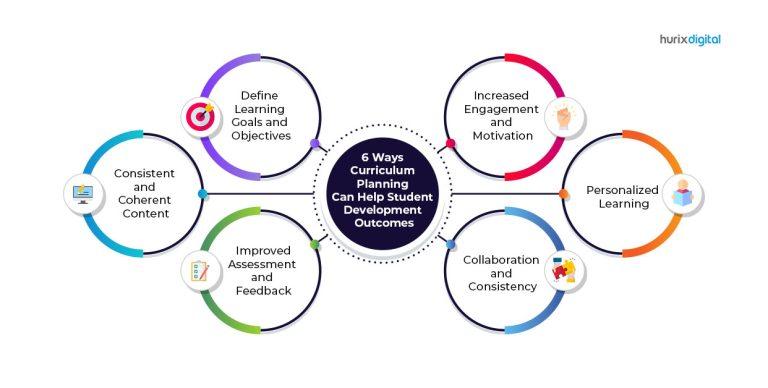Curriculum Manager: Essential Tools & Strategies for Effective Education Planning
Are you aspiring to become a Curriculum Manager in a university, college, or school setting? as education technology continues to transform learning environments, Curriculum Managers play a pivotal role in shaping academic success. This thorough guide outlines the must-have tools, proven strategies, and practical insights required to thrive in education planning. Whether you’re starting your EdTech career or aiming to upskill, discover how you can make a meaningful impact as a Curriculum Manager.
Understanding the Curriculum manager Role in EdTech
The Curriculum Manager is responsible for designing, developing, and overseeing educational programs that align with institutional goals and current pedagogical trends. In today’s digital-first surroundings, leveraging education technology is essential for creating engaging and effective curricula for students of all ages.
- Strategic Planning: Align curriculum development with academic standards and institutional vision.
- Technology Integration: Incorporate digital resources and tools to enhance curriculum delivery.
- Stakeholder Collaboration: Work closely with faculty, teachers, and administrative staff.
- Continuous Advancement: Monitor, assess, and revise curriculum strategies using data-driven insights.
Essential Tools Every Curriculum Manager Should Know
Education technology offers a suite of powerful solutions to streamline curriculum management and optimize learning outcomes. Mastering the following tools can maximize your efficiency and effectiveness as a Curriculum Manager:
Learning Management Systems (LMS)
- Canvas and Moodle: Organize course materials, track student progress, and facilitate online learning.
- Blackboard: Connect students and instructors, run assessments, and measure learning outcomes.
Curriculum Mapping Software
- Atlas: Develop, visualize, and adjust curriculum maps for alignment with educational standards.
- Curriculum Trak: Simplify lesson planning, mapping, and reporting for K-12 and higher education.
Data Analysis & Assessment Tools
- Google Workspace for Education: Collaborate on curriculum documents, surveys, and feedback forms.
- Assessment Platforms: Leverage tools for quizzes, formative assessments, and performance tracking.
Collaboration and Interaction platforms
- Microsoft Teams: Foster real-time collaboration between educators, administrators, and students.
- Slack: Streamline communication and workflow management.
Strategic Approaches for Effective Curriculum Planning
Adopting proven strategies is vital to ensure your curriculum aligns with evolving educational needs.Here are essential approaches for Curriculum Managers in schools, colleges, and universities:
Conduct Needs Assessments
- Analyze current curriculum gaps using performance data.
- gather feedback from students, faculty, and industry partners.
- Identify emerging skills and competencies relevant to the subject area.
Design Inclusive and Flexible Curriculum
- Integrate differentiated instruction to accommodate diverse learner needs.
- Incorporate blended learning and online modules for accessibility.
- Foster student engagement through interactive and multimedia content.
Promote continuous Professional Development
- Encourage faculty to participate in edtech training and workshops.
- Stay updated on the latest educational technology trends.
- Collaborate through professional learning communities.
Leverage Data-Driven Decision Making
- Monitor student outcomes with analytics tools.
- Use feedback and assessment results to refine curriculum maps.
Benefits of Effective Curriculum Management in Education Technology
Implementing smart tools and strategies as a Curriculum Manager offers wide-ranging benefits for educational institutions and the learning community:
- Improved Student Outcomes: Well-designed curricula supported by EdTech lead to higher engagement and achievement rates.
- Operational Efficiency: Automation of planning, mapping, and communication saves time and reduces errors.
- Scalability: Technology-powered curriculum solutions make it easier to adapt to changes in enrollment or subject offerings.
- Data-Informed Decisions: Real-time analytics allow for precise identification of trends, gaps, and areas for improvement.
- Faculty Empowerment: Providing educators with modern tools and resources to design impactful lessons enhances job satisfaction.
Practical Tips for Aspiring Curriculum Managers
If you’re aiming for a Curriculum Manager job at a university, college, or school, consider these actionable tips to set yourself apart:
Develop strong EdTech Skills
- gain hands-on experience with top Learning Management Systems and curriculum mapping software.
- Stay proficient in digital collaboration platforms and assessment tools.
Build Interpersonal Abilities
- hone leadership, negotiation, and teamwork skills to communicate effectively with stakeholders.
- Practise active listening and empathetic understanding to incorporate diverse perspectives.
Stay informed and Adaptable
- Engage in continuous learning—attend webinars, courses, and workshops on education technology.
- Be open to experimenting with new tools and instructional methods.
Create a Dynamic Portfolio
- Document curriculum projects, accomplished strategies, and technology integration examples.
- Present case studies demonstrating your impact on student achievement or curriculum innovation.
Key Responsibilities of a Curriculum Manager
Understanding the core duties of a Curriculum Manager in education technology will help you target your career search and showcase relevant skills:
- lead curriculum review and redesign processes for academic departments.
- Integrate blended learning,digital assessments,and interactive content into program structures.
- evaluate and recommend edtech solutions for lesson planning and delivery.
- Supervise the development of instructional resources and teaching guides.
- Ensure compliance with accreditation standards and educational regulations.
- Coordinate cross-departmental curriculum mapping and reporting efforts.
How to Get Hired as a Curriculum Manager in Education Technology
Landing a Curriculum Manager position at a reputable university, college, or school requires a blend of qualifications, experience, and professional mindset. here’s how you can maximize your chances:
- Educational Background: Degrees in Education, Curriculum & Instruction, Instructional Design, or Educational Technology.
- Relevant Experience: Classroom teaching, instructional design, or program coordination roles enhance your application.
- Certifications: Consider EdTech or curriculum management credentials to boost credibility.
- Technical Proficiency: Expertise in learning management systems,curriculum mapping software,and assessment platforms.
- Portfolio & References: Showcase your EDtech projects and provide strong professional recommendations.
Conclusion
As a Curriculum Manager in universities, colleges, or schools, embracing education technology is the key to effective curriculum planning and delivery. By mastering essential EdTech tools, implementing robust strategies, and cultivating modern skills, you can drive meaningful educational change.Whether you’re preparing to enter this rewarding field or advancing your existing career, your ability to plan, innovate, and lead will shape the learning experiences of countless students. Begin your journey today,and become a catalyst for educational excellence in the digital age.

